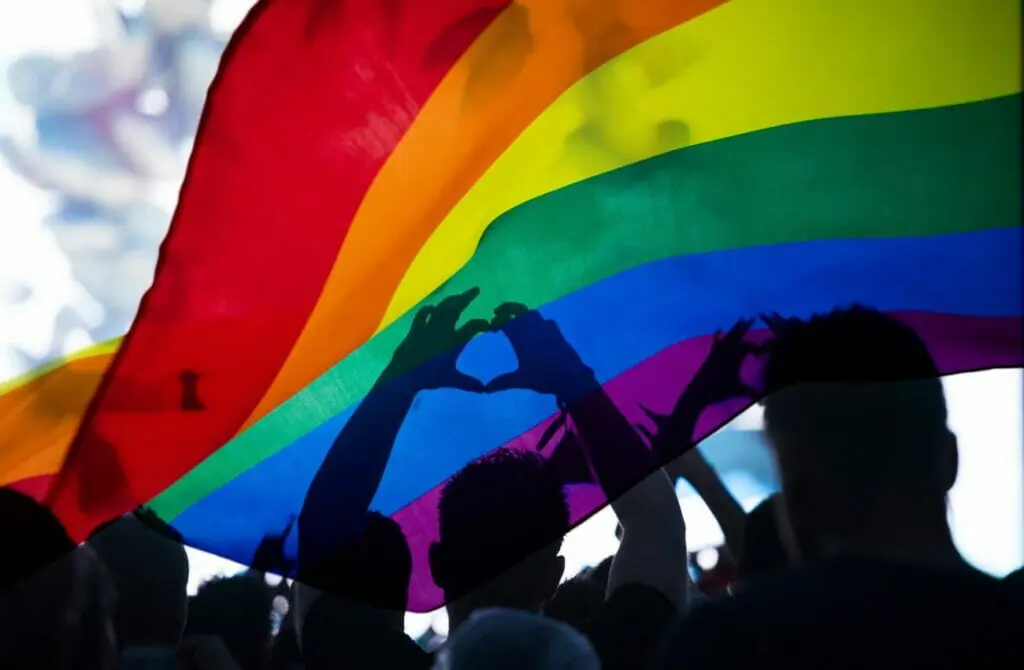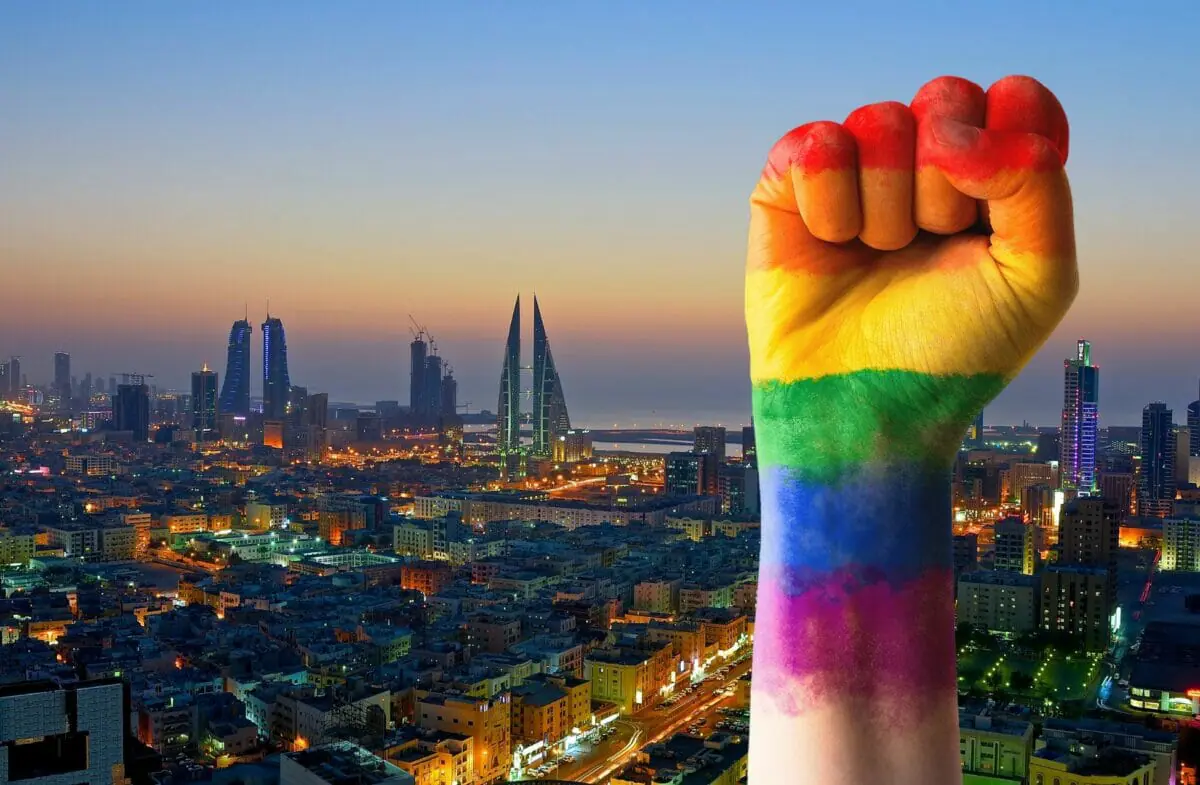In Bahrain, lesbian, gay, bisexual, and transgender (LGBT) individuals face legal challenges and discrimination that their non-LGBT counterparts do not encounter. Vague indecency laws in the country are often employed to target gender and sexual minorities, creating an environment of vulnerability for LGBT citizens and tourists alike.
While homosexuality is legal in Bahrain, other rights, such as gay marriage, changing gender, and adoption, remain restricted or not recognized, leading to a lack of full equality for the LGBT community.
Travelers and expatriates should be aware of the local legal landscape and cultural climate, as the situation for LGBT individuals can vary and rapidly change in different countries. It is important for visitors to stay updated on current events and seek advice from reputable sources before traveling. Vigilance is essential, as bad actors can be present in any country, making it imperative to prioritize personal safety while abroad.
LGBT advocacy groups, both local and international, work toward improving rights and addressing the challenges faced by the LGBT community in Bahrain. These organizations can be instrumental in providing guidance, support, and resources for LGBT individuals and allies. Staying informed and connected with such groups will be beneficial in understanding and navigating the state of LGBT rights in the country.
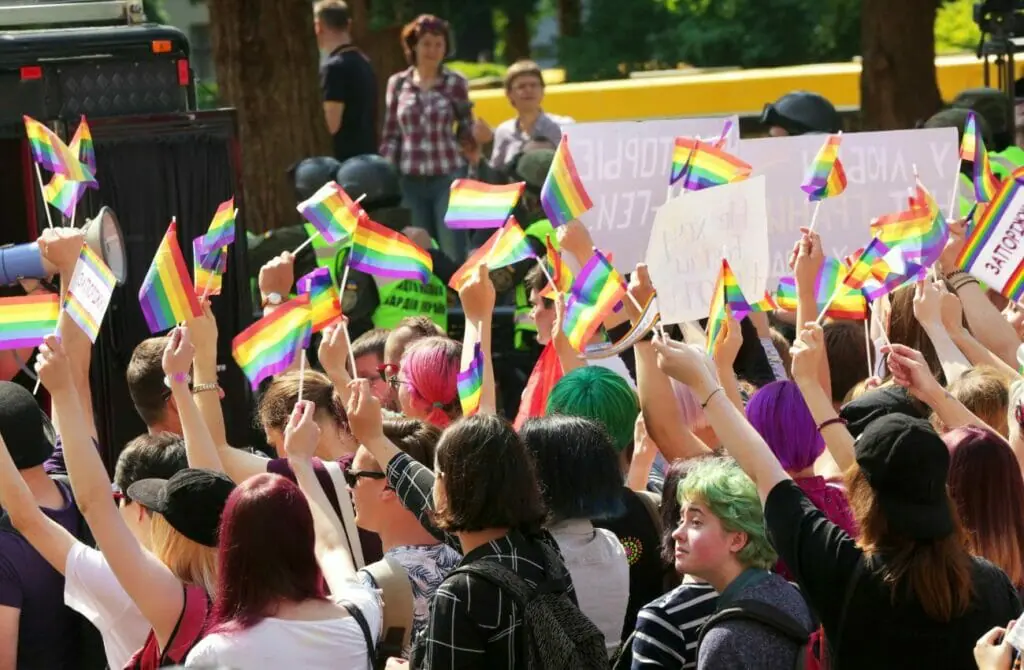

History Of LGBT Rights In Bahrain
The history of LGBT rights in Bahrain can be traced back to its time as a British Protectorate when same-sex activity was illegal. However, in 1976, a new Penal Code was enacted, which removed any laws prohibiting consensual acts between adults, regardless of their gender. This effectively decriminalized consensual same-sex relations, marking a significant step in the progress of LGBT rights in the country.
While some attempts have been made to restrict the rights of LGBT individuals, these efforts have not been successful. It is important to note that the legal status of LGBT rights in Bahrain primarily affects local people, but cautious optimism can be maintained when considering the situation for tourists. Foreign visitors are generally subject to the same laws as locals, though enforcement might be less stringent on tourists.
Despite the decriminalization of same-sex adult relationships, Gay Bahrain still lacks comprehensive legal protections against discrimination on the grounds of sexual orientation or gender identity. There are no specific anti-discrimination laws in place to safeguard employment or housing rights for LGBT individuals. In this respect, progress remains to be made in the areas of human rights, particularly for the LGBT community.
Nevertheless, there are active local and international advocacy groups working to improve LGBT rights in Bahrain. It is crucial for individuals wishing to engage with these organizations or seek support to remain abreast of the current political climate in the country, as situations can change rapidly, and information can become outdated.
In conclusion, while Bahrain has made progress in terms of decriminalizing same-sex relationships, significant efforts still need to be made to ensure the protection and equal treatment of the LGBT community.
Both locals and tourists should remain vigilant, understanding that, as with any country, there might be individuals who do not adhere to the legal norms or who harbor discriminatory attitudes. Always seek up-to-date information and advice before engaging in any activity or travel related to LGBT rights in Bahrain.
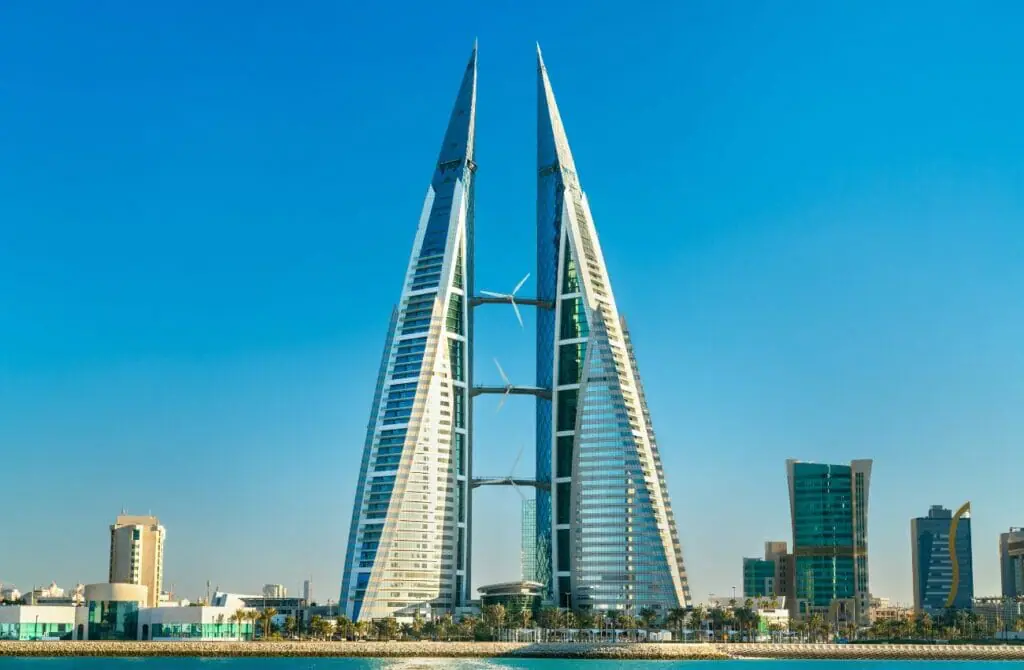
The LGBT Legal Situation In Bahrain
Lesbian, gay, bisexual, and transgender (LGBT) people living in Bahrain face legal challenges and discrimination not experienced by non-LGBT residents. Although homosexual activity in Bahrain has been decriminalized since March 20, 1976, there is no legislation specifically prohibiting discrimination based on gender identity or sexual orientation.
LGBT individuals may be targeted under Bahrain’s vague indecency laws, which can be used to discriminate against sexual minorities. Additionally, Bahrain follows Islamic law, under which same-sex activity, adultery, and sodomy can be seen as punishable offenses. The Penal Code of the Persian Gulf country does not explicitly mention these acts, but local interpretations can sometimes translate into hostile behaviors.
While same-sex marriage is not legally recognized in Bahrain, there has been some degree of openness in discussing homosexuality since the 1990s. However, the situation on the ground can change rapidly, and it is essential for both local residents and tourists alike to seek current advice and remain vigilant about their safety and human rights.
In order to protect oneself, it’s essential to be aware of local customs and practices regarding public displays of affection and err on the side of caution when engaging in same-sex activities. Tourists should also research their accommodations in advance and choose places with a reputation for being LGBT-friendly.
Several organizations advocate for LGBT rights and support in Bahrain and raise awareness about the issues facing LGBT individuals. These groups often provide valuable resources and connections to help navigate the complicated legal landscape.
Remember, information can become outdated quickly, and there can always be bad actors. It is important to be cautious, stay up-to-date on the legal situation, and seek advice from reliable sources when necessary.
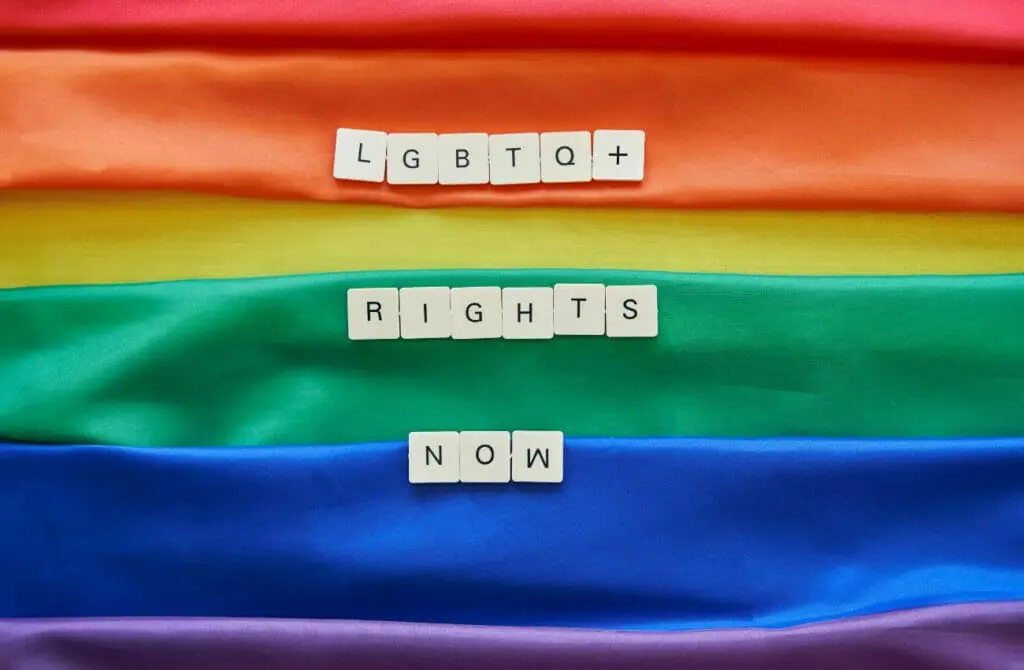

The LGBT Social Situation In Bahrain
LGBT individuals in Bahrain face a distinct set of challenges, as the country’s legal framework offers little to no protection against discrimination. Sexual orientation and gender identity are not recognized under Bahraini law, and many LGBT individuals prefer to remain discreet about their orientation to avoid potential ostracism, harassment, or punishment. This environment of fear and discrimination makes it difficult for both local residents and tourists alike to openly express their identities.
One prominent international organization working to shed light on the country’s human rights abuses is Human Rights Watch. Their report highlights the systematic discrimination against homosexuals, with vague laws against indecency often being used to persecute gender and sexual minorities.
The government has also banned all independent media from operating in the country, which has further suppressed advocacy efforts and free expression. As a result, it is important for both locals and travelers to remain cautious when engaging in any LGBT-related discussions or events in Bahrain.
To protect LGBT individuals, especially tourists, it is essential to exercise caution and discretion when discussing matters related to sexual orientation or gender identity. Situations can change rapidly, and information may be outdated, so it is always prudent to seek current advice before traveling. Keeping informed about local customs and laws, as well as maintaining connections with trusted sources or advocacy groups, can go a long way in ensuring personal safety and maintaining a low profile.
It is important to note that while a majority of people in Bahrain may not condone homophobia or discrimination, bad actors exist in every country, and vigilance should be maintained.
For those seeking support or information on LGBT rights in Bahrain, organizations such as the International Lesbian, Gay, Bisexual, Trans and Intersex Association (ILGA) can provide guidance and updates on the current situation. By staying informed and engaged, individuals can better navigate the social landscape in Bahrain and help foster a more inclusive environment for all.

Trans Rights In Bahrain
In Bahrain, transgender people face challenges and discrimination that differentiate them from the cisgender population. Legal gender recognition is allowed, but it requires undergoing gender-affirming surgery. While there is no law prohibiting discrimination based on gender identity, transgender individuals might be targeted under ambiguous penal code sections related to indecency and immorality.
Protection of transgender people’s rights is essential for both local residents and tourists alike. It is always crucial to remain vigilant and cautious, as situations in the country can change, and some individuals might not be as accepting as others. Consequently, it is of utmost importance to stay informed by seeking the most up-to-date information and advice before traveling.
Several steps can be taken to protect transgender individuals in Bahrain. First, it is essential for them to know their rights, educate themselves about local laws, and understand the limitations and potential risks they might face. This can prevent unforeseen problems and misunderstandings during their time in Bahrain.
Moreover, for tourists who are transgender or gender nonconforming, being discreet about their gender identity might be a safe practice, especially considering the potential use of the ambiguous penal codes mentioned earlier.
Connections and support from local and international LGBT advocacy groups can also be beneficial. These organizations often have updated information, resources, and support for individuals facing challenges related to gender identity in Bahrain.
A few organizations that work to promote LGBT rights in the region are the Middle East and North Africa (MENA) LGBT Resource Development, the Bahrain Human Rights Watch Society, and the United Nations Development Programme (UNDP). Engaging with them might provide valuable insights into the actions and precautions necessary to navigate Bahrain’s complex socio-legal landscape while respecting and affirming one’s gender identity.
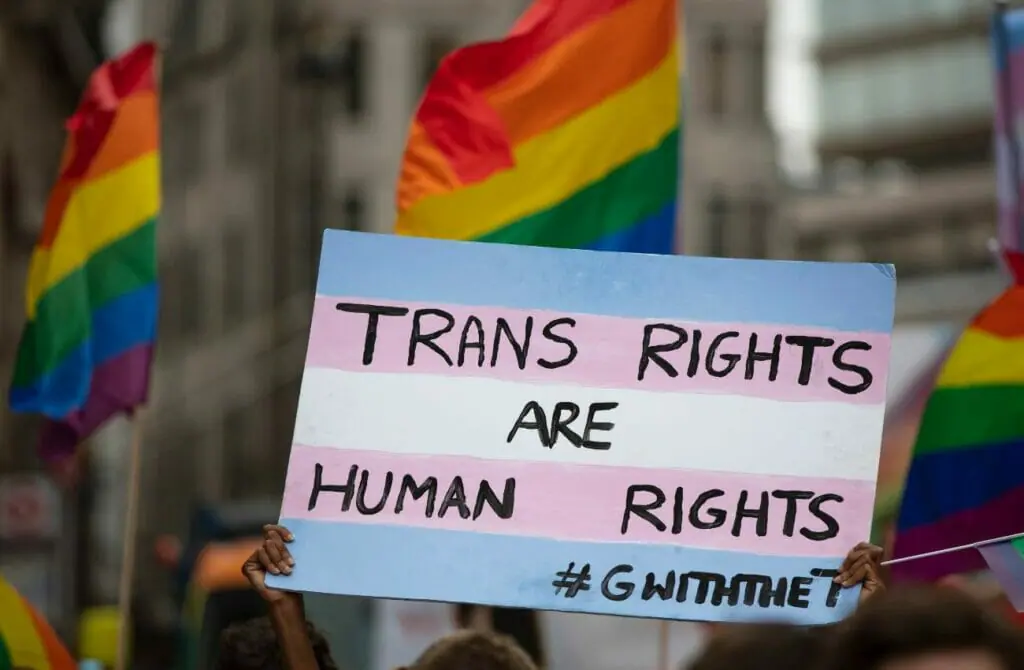

The Future For The Queer Community In Bahrain
As the situation regarding LGBT rights in Bahrain evolves, it is crucial to consider the effects on both local residents and tourists. While homosexual acts are legal in Bahrain, there is a lack of protection against discrimination, and censorship regarding LGBT issues remains ambiguous. Local human rights defenders and NGOs are striving to ensure better conditions and protection for the LGBT community.
The future of LGBT rights in Bahrain may see changes to its legal landscape, especially as international organizations and foreign governments, such as the United Kingdom, continue to exert pressure for greater human rights advancements. However, given the complexities of the political environment, the situation can change rapidly, and it is essential to be mindful of potential setbacks, particularly in the realm of freedom of expression.
For domestic and international travelers, it is particularly important to remain vigilant. You should always seek up-to-date information and advice before traveling, as the situation can be fluid and may differ over time. Awareness of both the local legal challenges and the potential dangers posed by bad actors is crucial in ensuring personal safety.
Collaboration with LGBT advocacy groups is advised since these organizations, such as the Bahrain Institute for Rights and Democracy, are well-versed in the most recent developments and can provide helpful guidance.
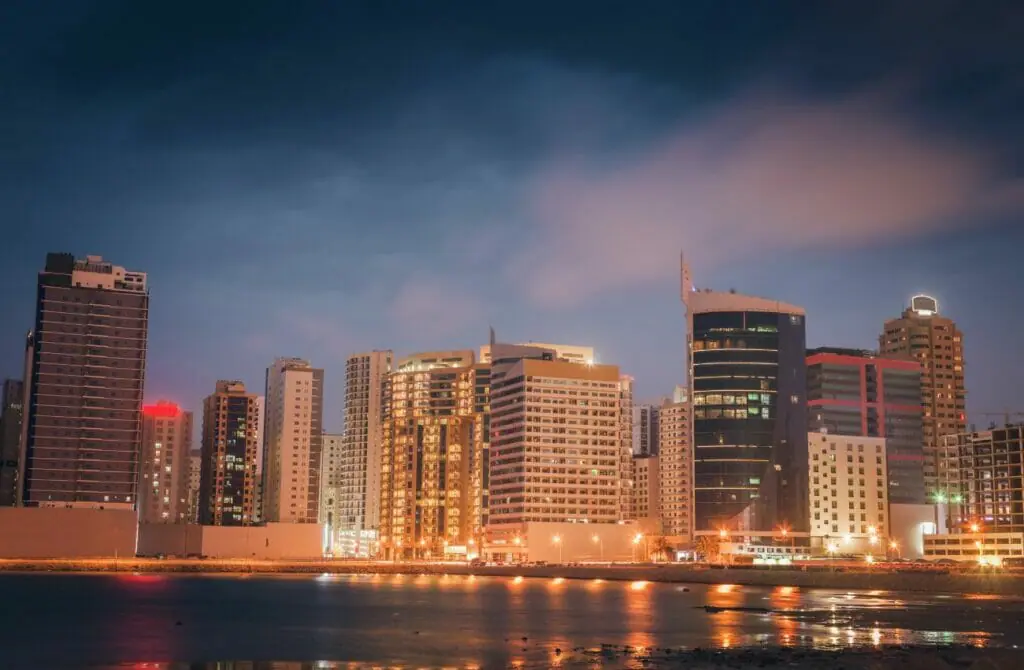
Protect Yourself While Traveling In Gay Bahrain
While discussing LGBT rights in Bahrain, it is important to understand the distinctions between the experiences of local people and tourists. Although same-sex activity is legal in Bahrain, the country does not offer comprehensive protections to the LGBT community, which could pose challenges for both locals and visitors. To stay safe and maintain your well-being, there are several key areas to consider.
In terms of public display, raising a flag, promoting slogans, or showcasing any sign symbolizing homosexuality can potentially lead to legal issues as they were at risk of being criminalized in 2021. It is advisable to avoid such displays to prevent confrontations or legal complications.
Employment discrimination is not legally addressed in Bahrain, meaning LGBT individuals may face biases in the workplace environment. Being aware of this potential challenge can help in making informed decisions about job opportunities and establishing a support network among colleagues.
Housing and education settings may also pose potential obstacles for LGBT individuals. Currently, there are no legal protections against housing discrimination or specific measures in place to address inclusive education. Remain vigilant and research housing providers and educational institutions that have a track record of inclusivity.
Journalists covering stories related to LGBT rights should exercise caution, as the freedom of expression can be limited in the country. Ensuring a professional demeanor and refraining from promoting LGBT ideas or beliefs is a way to minimize potential backlash.
Safety is paramount for everyone, and LGBT individuals and tourists should remain vigilant while navigating Bahrain. While the country may not pose immediate dangers to all, understanding the nuances of legal and social challenges can inform decision-making and help protect oneself.
Keeping in mind that situations can change, it is essential to stay up to date with current information and advice before traveling. LGBT advocacy groups such as the International Lesbian, Gay, Bisexual, Trans and Intersex Association (ILGA) can be a source of support and reliable information for those seeking to protect themselves while traversing Bahrain.
